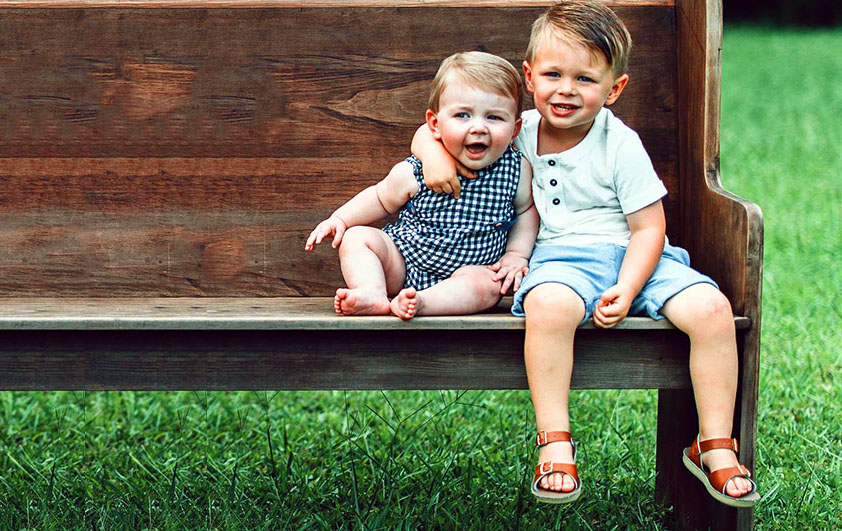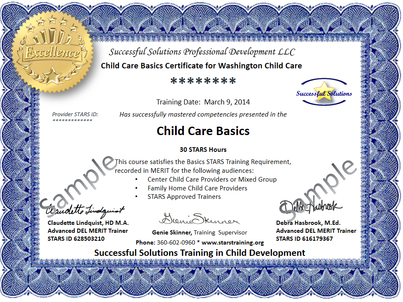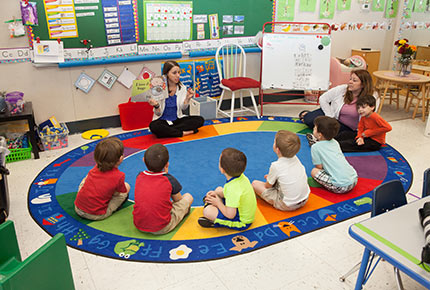Preschool Vs Daycare: Which is Best for Your Child’s Development?

Preschool and daycare provide different experiences for young children’s development and care needs. Preschool focuses on early education, while daycare offers a more general childcare setting.
Preschool offers structured learning activities and a curriculum to prepare children for school, while daycare provides a nurturing environment with a focus on supervision and playtime. Both options can benefit children’s social, emotional, and cognitive development, but the choice depends on the specific needs and preferences of parents and their children.
Whether a family prioritizes early education or more general care, both preschool and daycare can offer essential support and opportunities for children’s growth during their early years.

Credit: thelearningstation.org
Preschool Vs Daycare For Child Development
Preschool and daycare offer different approaches to child development. Preschool focuses on early education and socialization, while daycare primarily provides childcare services. Choosing between them depends on the specific needs and goals of the child and their family.
Understand The Core Differences
When considering the options of preschool and daycare for your child, it’s important to understand the core differences between the two and how they impact your child’s overall development. While both preschool and daycare provide care and supervision for young children, they have distinct approaches and objectives that set them apart.
Preschool, also known as pre-kindergarten, focuses on preparing children for formal education, typically starting at around age three or four. It provides a structured and educational environment where children engage in age-appropriate activities to enhance their cognitive, social-emotional, and physical development.
Daycare, on the other hand, primarily focuses on providing a safe and nurturing environment for children while their parents or guardians are at work. It offers more flexible schedules and may cater to children of various age groups. While daycare centers may have educational components, their primary goal is to provide attentive care and meet the basic needs of the children.
Assess The Developmental Impacts
When it comes to child development, both preschool and daycare play crucial roles, but they differ in their developmental impacts on children. Preschools are designed to prepare children for formal schooling by fostering various developmental domains. They offer structured learning experiences that promote cognitive skills, language development, social interaction, and emotional resilience.
Daycare, on the other hand, focuses more on providing a nurturing environment for children. While it may not have the same level of structured educational activities as preschool, daycare centers still contribute to a child’s development. They offer opportunities for socialization, emotional support, and basic skill-building through play and interaction with peers and caregivers.
However, it’s important to note that the impact of preschool and daycare on child development can vary depending on the specific programs and quality of care offered. It’s essential to choose a reputable and well-rounded facility that aligns with your child’s developmental needs.
Analyze The Typical Daily Schedule
Another aspect to consider when comparing preschool and daycare is their typical daily schedule. Preschools often follow a structured routine, simulating a school-like environment. A typical preschool day includes both structured and unstructured activities, such as circle time, art projects, story time, outdoor play, and rest periods.
Daycare centers, on the other hand, generally provide a more flexible daily schedule to accommodate the varying needs of children. While they still offer a mix of activities like free play, art, and outdoor time, the emphasis is on providing a nurturing and comfortable environment for the child throughout the day.
To determine which option is best for your child, consider your child’s personality, developmental goals, and your own needs as a working parent. A preschool environment may be more suitable if you want your child to focus on academic and social readiness for kindergarten. On the other hand, if your primary concern is providing reliable care while you work, a daycare center may better meet your needs.
Determining Best For Your Child
Deciding between preschool and daycare is a significant decision for parents, as it directly impacts their child’s early education and development. When it comes to determining what is best for your child, there are a few key factors to consider. By evaluating your child’s age and maturity, your family’s schedule and needs, and your child’s social and learning preferences, you can make an informed choice that sets your little one up for success.
Consider The Child’s Age And Maturity
One crucial aspect to ponder when deciding between preschool and daycare is your child’s age and maturity level. Preschool programs are typically designed for children aged 3-5 years, who are ready for a more structured learning environment. These programs focus on academic readiness and socialization skills, preparing children for kindergarten and beyond.
In contrast, daycare centers cater to a broader age range, starting from infancy through early childhood. Daycare centers often offer a more relaxed atmosphere, providing a nurturing environment where younger children can explore and learn through play. This flexible setting can be particularly beneficial for children who are not yet ready for a structured learning environment.
Evaluate Your Family’s Schedule And Needs
Another crucial factor to consider is your family’s schedule and needs. Preschool typically operates on a more structured schedule, often following the traditional academic year and operating during standard school hours. This can align well with families who have older siblings attending school, as it allows for a more synchronized routine.
On the other hand, daycare centers often offer more flexible hours, making them a suitable choice for families with non-traditional work schedules or those requiring extended care. Whether you need full-day or part-time care, daycare centers can provide the flexibility to meet your family’s specific needs.
Reflect On Child’s Social And Learning Preferences
The social and learning preferences of your child should also be taken into account when choosing between preschool and daycare. Preschool allows children to engage with peers in a structured environment, fostering social development and teamwork skills. Additionally, the curriculum of preschool programs often incorporates early literacy, numeracy, and other educational activities.
Daycare centers, on the other hand, offer a more relaxed setting where children can interact with a wider age range, allowing for diverse social experiences. Moreover, daycare centers prioritize play-based learning, which encourages creativity, problem-solving, and self-expression in a less formalized manner.
When making the decision between preschool and daycare, it’s important to keep in mind your child’s age, maturity, your family’s schedule and needs, as well as your child’s social and learning preferences. By considering these factors, you can make an informed choice that will support your child’s growth and development during their early years.
Analyzing Preschool Benefits
When it comes to choosing between preschool and daycare for your child, it’s important to consider the specific benefits that preschool offers. Preschool not only provides a safe and nurturing environment for young children but also focuses on the early education and development of important skills. In this section, we will analyze the various benefits that preschool offers and why it may be the ideal choice for your child.
Curriculum Structured For Early Education
One of the significant advantages of preschool is its structured curriculum designed specifically for early education. Preschool programs follow a carefully crafted curriculum that aims to introduce children to fundamental concepts and subjects in a playful and stimulating way. By incorporating age-appropriate learning activities, preschool helps children develop cognitive skills and sets a strong foundation for future academic success.
Focus On Social Skills And Academic Foundation
Another essential aspect of preschool is its emphasis on both social skills and academic foundation. Preschool provides an environment where children can engage in various social interactions with their peers and teachers, fostering the development of important social skills such as cooperation, communication, and problem-solving. Moreover, preschool cultivates an atmosphere that encourages curiosity, creativity, and a love for learning, which lays down the groundwork for a lifelong passion for education.
Having a solid academic foundation is crucial for children, and preschool plays a pivotal role in establishing that foundation. Preschool offers age-appropriate activities and lessons that help children develop essential pre-reading, pre-writing, and math skills. Engaging in hands-on activities, educational games, and interactive storytelling, children can grasp concepts in a fun and memorable way, ensuring a smooth transition into formal schooling.
Preparing For Future Success
Preschool acts as a stepping stone for children, preparing them for future success in both academic and social spheres. Through its focus on early education and social skills, preschool equips children with the necessary tools and abilities to thrive in kindergarten and beyond. The structured curriculum, combined with a nurturing environment, helps children build a strong educational foundation, foster independence, and develop a positive attitude towards learning.
In conclusion, preschool offers numerous benefits that make it a favorable choice for parents seeking to provide their children with a well-rounded education. Through its structured curriculum, focus on social skills and academic foundation, preschool sets the stage for future success. By considering these advantages, parents can make an informed decision and ensure their child’s educational journey begins on the right path.
Preschool’s Role In Development
Preschool plays a crucial role in a child’s development, providing a structured environment that promotes learning, social interaction, and cognitive skills. Unlike daycare, preschool focuses on preparing children for formal schooling, helping them develop essential skills for future success.
Encouraging Independence And Confidence
In the early years of a child’s life, building a strong foundation of independence and confidence is crucial. Preschool plays a vital role in this development by encouraging children to explore their surroundings, make choices, and take responsibility for themselves.
At preschool, children are provided with opportunities to develop independence through various activities. Through hands-on experiences, they learn to tie their shoelaces, button their shirts, and even pour water into their cups. These activities not only foster a sense of self-reliance but also cultivate their fine motor skills. As children successfully complete these tasks, they gain a sense of accomplishment and an enhanced belief in their abilities.
Moreover, preschool teachers create a supportive environment where children are encouraged to express themselves and make their own decisions. For instance, during playtime, children are given the freedom to choose which toys they would like to play with and how they want to engage in activities. This freedom of choice nurtures their decision-making skills and empowers them to become confident individuals.
Preparing For The Transition To Formal Schooling
Preschool not only fosters independence and confidence but also plays a significant role in preparing children for the transition to formal schooling. It serves as a bridge between the home environment and the structured education they will soon encounter.
Preschool curriculums are designed to introduce children to key academic concepts and routines that they will encounter in primary school. Through engaging activities and play-based learning, preschoolers are exposed to early literacy and numeracy skills, problem-solving techniques, and basic social interaction. These early educational experiences equip them with a foundation that will make the transition to formal schooling smoother.
Furthermore, preschool provides opportunities for children to develop essential skills such as following directions, practicing good listening skills, and collaborating with their peers. These skills are not only necessary for academic success but also contribute to their overall social and emotional development.
By attending preschool, children gradually become familiar with the expectations and structure of a classroom setting. They learn to participate in circle time, take turns, and engage in group activities. These experiences help alleviate any anxiety or unfamiliarity that children may feel when entering primary school.
In conclusion, preschool plays a critical role in a child’s development. It encourages independence and confidence by providing opportunities for children to make choices, complete tasks, and express themselves. Additionally, it prepares children for the transition to formal schooling by introducing academic concepts, developing essential skills, and familiarizing them with a classroom environment. Through its holistic approach, preschool sets the stage for a successful educational journey.
Daycare Advantages Explored
When it comes to early childhood education, parents often find themselves choosing between preschool and daycare. In this article, we will explore the advantages of daycare and why it can be a great option for working parents. From flexible hours to a strong emphasis on care and basic learning, daycare provides numerous benefits for both children and their busy parents.
Flexibility In Hours For Working Parents
One of the key advantages of daycare is the flexibility it offers to working parents. Daycare centers typically operate for extended hours, accommodating the busy schedules of working moms and dads. This means that parents can drop off their children early in the morning and pick them up even late in the evening.
The flexible hours of daycare centers provide a great advantage, especially for parents who work irregular hours or have demanding jobs. Whether you have an early morning meeting or need to work late, you can be assured that your child is in a safe and nurturing environment, receiving quality care throughout the day.
The Emphasis On Care And Basic Learning
Daycare centers not only prioritize care but also focus on introducing basic learning concepts to young children. These centers understand that a child’s early years are crucial for their development, and they ensure that each child receives the attention and guidance they need.
At daycare, children engage in age-appropriate activities that promote cognitive, physical, and social development. They participate in art projects, storytelling, singing, and interactive play. With trained caregivers who understand child development, children are encouraged to explore, develop their creativity, and build social skills.
The emphasis on care and basic learning doesn’t mean that daycare centers neglect the importance of play and fun. Playtime is an important part of a child’s day at daycare. It allows them to interact with their peers, develop communication skills, and learn how to share and cooperate.
Moreover, many daycare centers integrate early literacy and numeracy activities into their daily routines. These activities foster a love for learning and prepare children for the transition to formal education.
In conclusion, daycare offers several advantages for working parents. The flexibility in hours allows parents to fulfill their work responsibilities while ensuring their child is well cared for. Additionally, the emphasis on care and basic learning at daycare centers helps children develop important skills and prepares them for their educational journey. If you are a working parent in need of reliable care and early childhood education for your child, daycare might be the ideal choice for you.
Daycare For Childhood Growth
Daycare and preschool both play crucial roles in a child’s growth and development. While preschool focuses on early education and preparation for school, daycare offers a nurturing environment for children’s overall well-being and socialization. Understanding the differences between the two can help parents make an informed decision for their child’s early years.
Daycare for Childhood Growth
Daycare provides a nurturing environment for various age groups, where children can thrive and develop holistically. With a focus on providing quality care and a structured learning environment, daycare centers are designed to support the growth and development of children during their crucial early years. In this section, we will explore the different aspects of daycare that contribute to childhood growth. Let’s dive in!
Nurturing Environment For Various Age Groups
One of the key advantages of daycare centers is the provision of a nurturing environment suitable for children of different age groups. With trained and experienced childcare professionals, daycare centers ensure that each child’s needs are met, promoting a sense of security and well-being. Younger children receive the care and attention they require, while older children are given opportunities to develop their independence and social skills.
Daycare centers often have separate areas or rooms designed specifically for different age groups, allowing children to interact and engage with others who are at a similar stage of development. This division allows activities and learning experiences to be tailored to meet the specific needs and interests of each age group, fostering a positive and supportive atmosphere.
Opportunities For Play-based Learning
Play is an essential aspect of a child’s development, and daycare centers embrace this by providing ample opportunities for play-based learning. Through play, children explore, experiment, and develop important skills such as problem-solving, communication, and creativity.
Daycare centers incorporate various learning materials, toys, and activities that are both engaging and educational. These activities are designed to stimulate children’s curiosity and promote their cognitive and physical development. Children are encouraged to explore their interests and engage in hands-on experiences, allowing them to learn at their own pace and in their own unique way.
In addition to indoor play areas, daycare centers often have outdoor spaces equipped with age-appropriate playground equipment. These outdoor play areas offer children the chance to develop their gross motor skills, engage in physical activity, and interact with their peers in a natural and stimulating environment.
To summarize, daycare centers provide a nurturing environment for various age groups, ensuring the specific needs of each child are met. Through play-based learning, children have ample opportunities to develop their cognitive, physical, and social skills. With these foundations in place, daycare centers play a vital role in fostering childhood growth and development.
Preschool Vs Daycare: Tailoring To Your Child
When it comes to choosing the right early education option for your child, you want to ensure you are making an informed decision. While preschool and daycare may seem similar, there are significant differences that can greatly impact your child’s development. In this article, we will explore the distinctive aspects of preschool and daycare, focusing on how they are tailored to the individual needs of your child.
Comparing Teacher Qualifications And Ratios
Teacher qualifications and ratios play a crucial role in providing a nurturing and educational environment for your child. Preschools typically employ teachers who have specialized degrees in early childhood education. These educators are trained to design and implement an age-appropriate curriculum, facilitating your child’s cognitive, emotional, and social growth.
Daycare centers, on the other hand, may have varying requirements for their staff. While some daycare centers may also have qualified teachers, others may have caregivers who may lack formal education in child development. Therefore, it is essential to investigate the qualifications of the staff at each daycare center you are considering for your child.
Moreover, the teacher-to-student ratios at preschools are generally lower than those at daycare centers. This means that your child is likely to receive more individualized attention and support in a preschool setting. The smaller group sizes in preschool allow teachers to focus on fostering each child’s unique skills and interests, aiding their overall development.
Investigating The Facilities And Resources Offered
Another crucial aspect to consider when choosing between preschool and daycare is the facilities and resources offered. Preschools are specifically designed to create an enriching learning environment. They often have age-appropriate classrooms equipped with educational materials, books, and learning aids. These resources are strategically placed to encourage independent exploration, critical thinking, and creativity in each child.
Daycare centers may also have play areas and toys; however, their focus may lean more toward providing a safe and supervised environment for children while their parents are at work. While daycare centers strive to ensure the well-being and basic needs of the children are met, the emphasis on educational resources may be less pronounced.
It is important to visit and inspect the facilities at each preschool and daycare center you are considering. Look for signs of a stimulating learning environment, such as bright and engaging classrooms, age-appropriate toys, and a variety of activities that encourage holistic development.
Investing time in understanding the facilities and resources offered by each option will enable you to choose an environment that aligns with your child’s unique needs and promotes their overall growth.
Making The Developmentally Sound Choice
When it comes to choosing between preschool and daycare for your child, making a developmentally sound choice is crucial. It’s important to weigh the options carefully, considering factors such as the cost, and quality of the program, and seeking feedback from other parents and experts. By balancing these aspects and understanding what each choice entails, you can ensure that your child receives the best possible early education and care.
Balancing Cost With Quality Of Program
In today’s world, cost is often a significant consideration for parents when choosing between preschool and daycare. However, it’s crucial to strike a balance between cost and the quality of the program. While a low-cost option may seem appealing, it’s important to consider the educational and developmental benefits that a high-quality program can provide for your child.
When evaluating the quality of a program, look for factors such as qualified and experienced teachers, a stimulating and enriching curriculum, a safe and nurturing environment, and positive parent reviews. Remember, investing in your child’s early education is an investment in their future, so it’s important to choose a program that prioritizes their development and well-being.
Consider creating a table to compare the cost and quality features of different preschools and daycare centers. This can help you make an informed decision based on the overall value offered by each option.
Seeking Feedback From Other Parents And Experts
While your own research is valuable, seeking feedback from other parents who have gone through similar experiences can provide valuable insights. Reach out to friends, family, and online parenting communities to gather firsthand experiences and recommendations.
Additionally, consulting with experts such as early childhood education professionals, pediatricians, or child psychologists can give you a broader perspective. These professionals can provide you with informed opinions and advice on the pros and cons of different educational settings based on your child’s unique needs and developmental stage.
As you gather feedback, be sure to consider your own preferences and parenting style, as what works well for one family may not be the best fit for yours. Ultimately, taking a comprehensive and holistic approach to decision-making can help ensure that you make the best choice for your child.
Frequently Asked Questions On Preschool Vs Daycare
What Is The Difference Between Preschool And Daycare?
Preschool focuses on early education while daycare offers supervision and care. Preschools usually have structured learning programs, whereas daycares provide a more flexible schedule. Preschools focus on preparing children for kindergarten, while daycares prioritize meeting children’s basic needs and providing a safe environment.
How Does Preschool Benefit A Child’s Development?
Preschool can enhance a child’s cognitive, social, and emotional development. It promotes critical thinking, problem-solving skills, and creativity. It also helps children develop social skills, improve communication, and build relationships with peers. Preschool provides a structured environment that encourages independence and prepares children for formal education.
What Are The Advantages Of Sending A Child To Daycare?
Daycare offers reliable care for working parents, ensuring their child’s safety and well-being. It provides opportunities for children to engage in social interactions and develop important social skills at an early age. Daycare centers also focus on providing a nurturing environment that promotes overall growth and development for children.
Conclusion
Ultimately, choosing between preschool and daycare depends on your specific needs as a parent. Preschool provides structured educational and social activities that prepare children for formal schooling. On the other hand, daycare offers a more flexible and child-centered approach to care.
Consider factors such as your child’s age, developmental stage, and your own work schedule when making this decision. What matters most is finding a safe and nurturing environment where your child can thrive and grow.

With over 20 years of experience in early childhood education, Jane brings a wealth of knowledge to Classroom Journey. She specializes in play-based learning and has a passion for inclusive education.






2 Comments